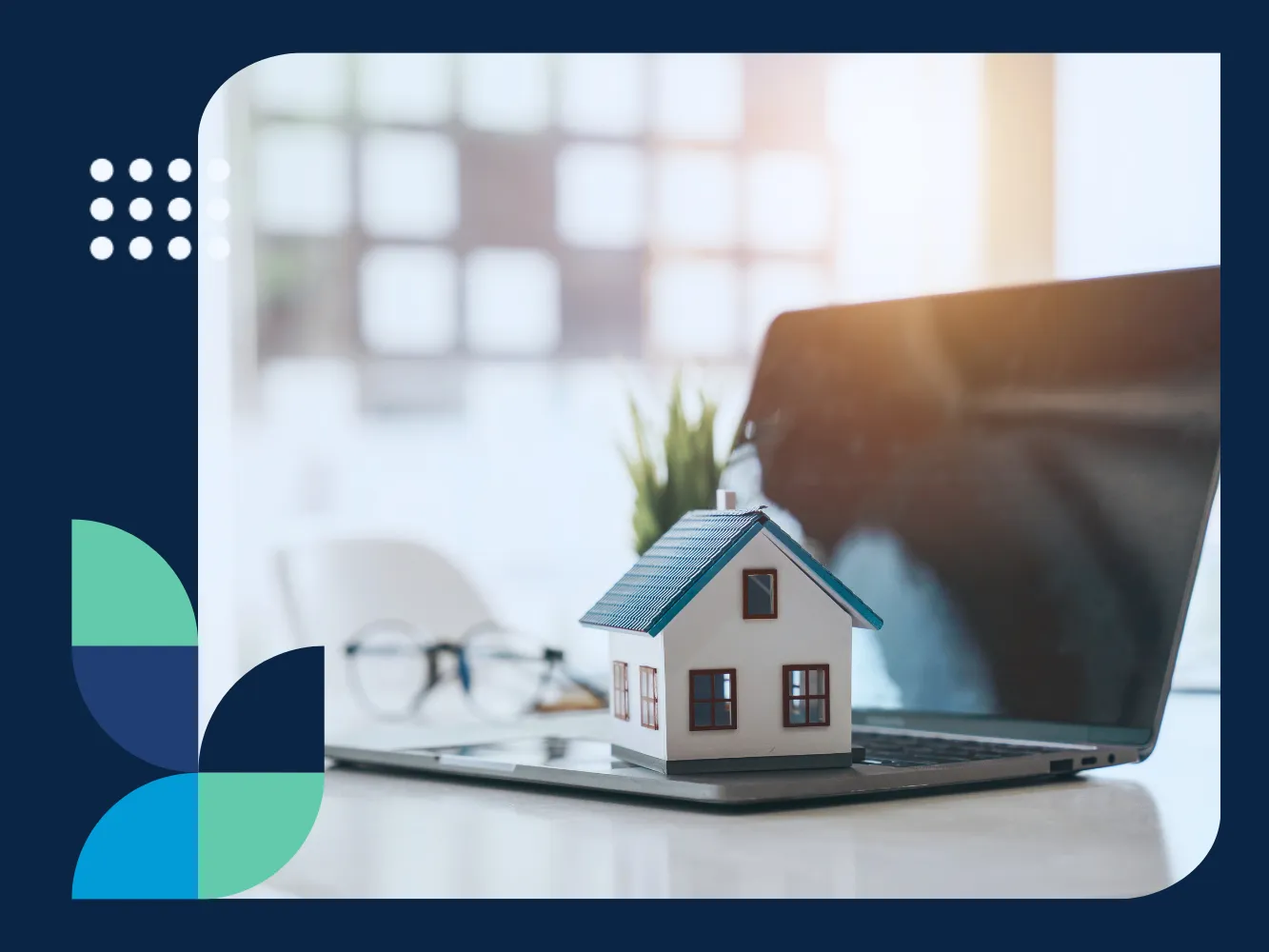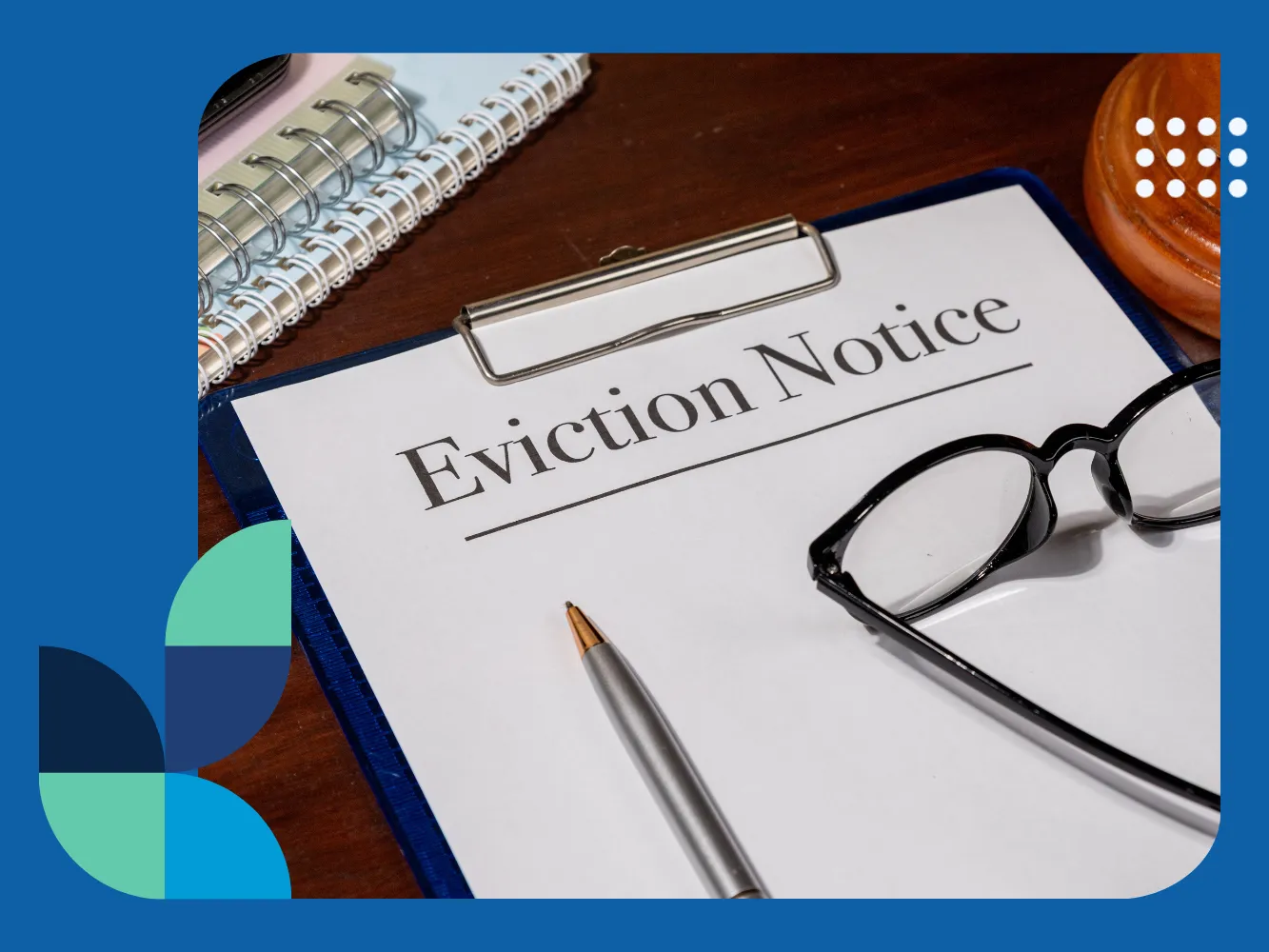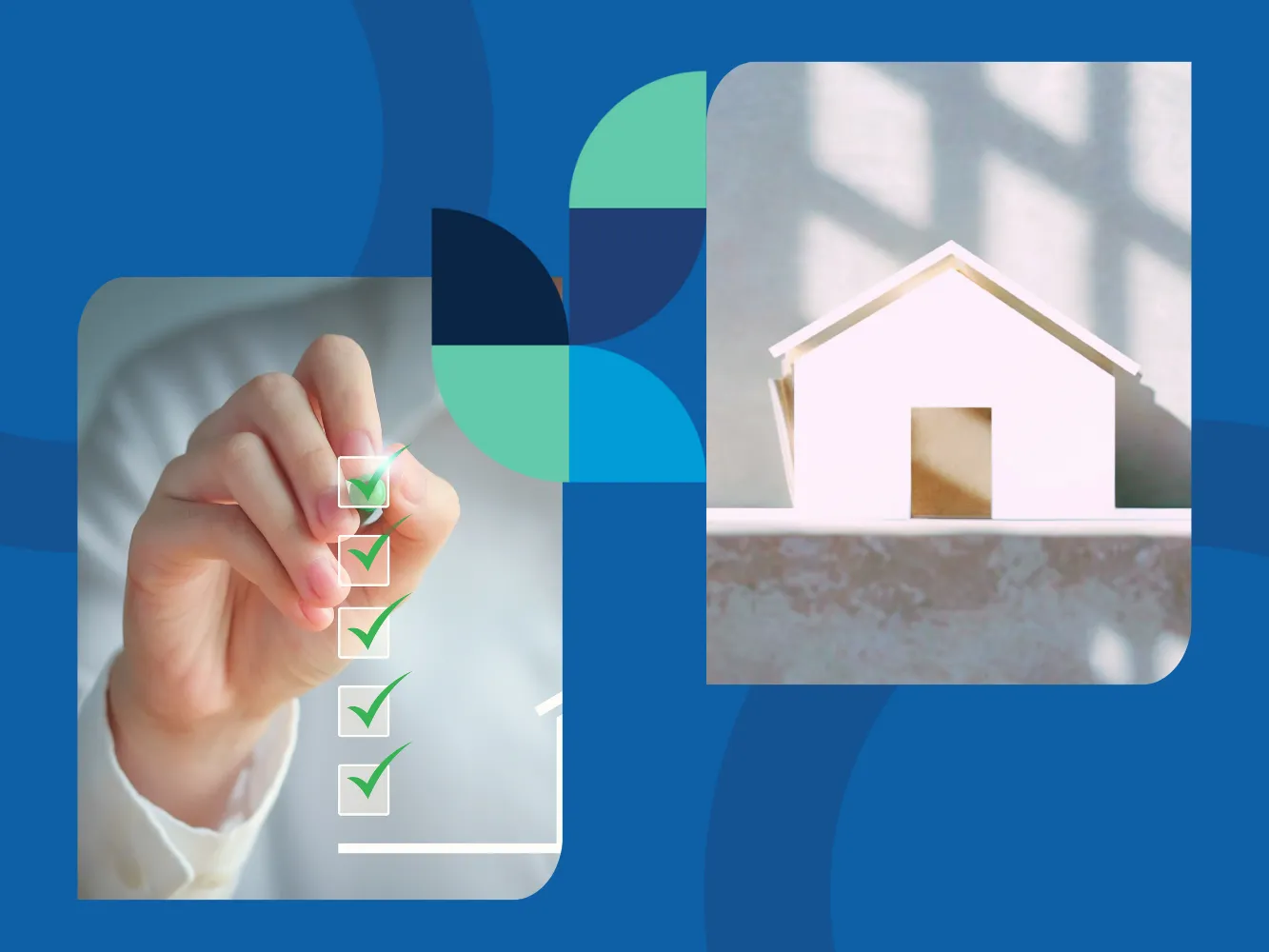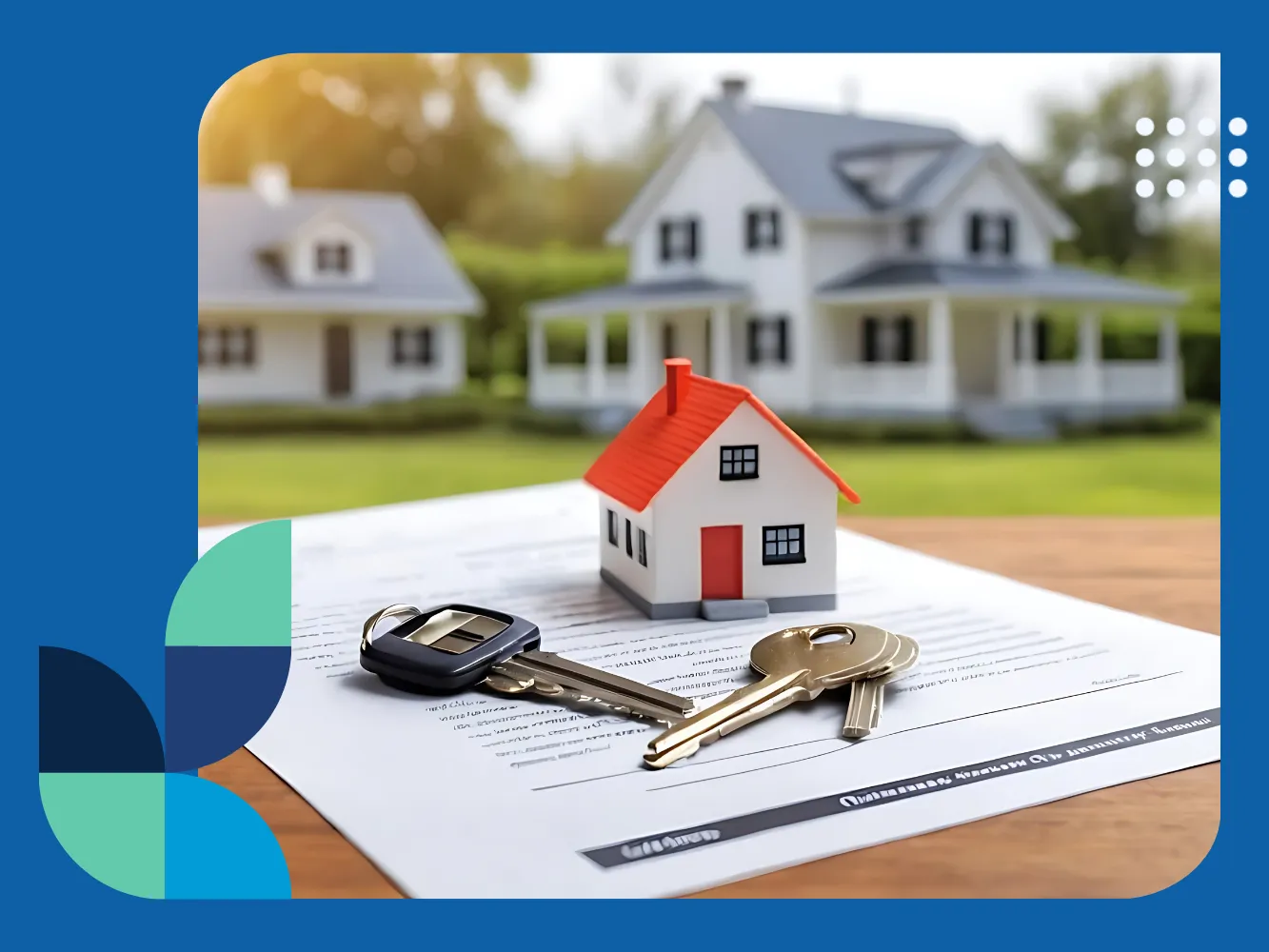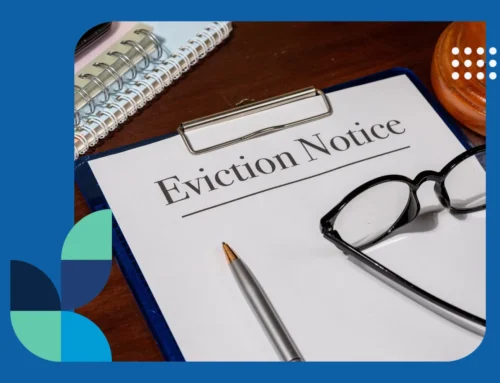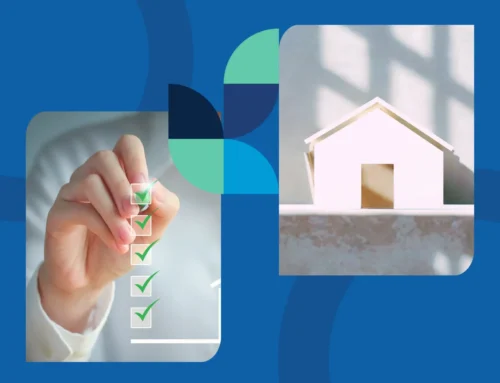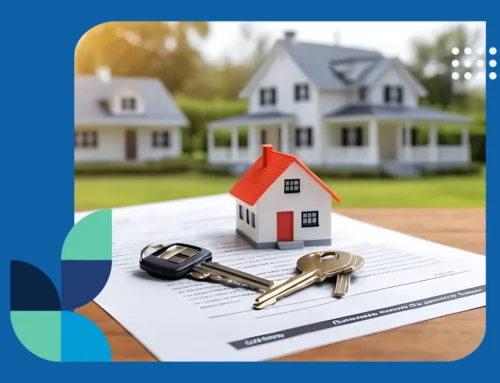If you’re wondering how to manage a rental property, know that it isn’t just about collecting rent and reacting to problems. It’s about creating a well‑oiled system that protects your investment, keeps residents satisfied, and steadily builds wealth over time.
For new landlords, the daily tasks can feel overwhelming: writing leases, screening residents, addressing maintenance issues, and navigating legal regulations. For experienced landlords, the challenge shifts to refining systems so nothing falls through the cracks.
This guide walks you through every essential part of how to manage a rental property — with practical steps, examples, and numbers you can use. Whether this is your first rental or one of many, you’ll find guidance that makes your property run smoothly and profitably.
How Do You Manage Residents Effectively in a Rental Property?
Your residents are your customers. When they’re happy, they stay longer, treat your property well, and pay on time. Poor resident management, on the other hand, leads to late rent, high turnover, and unnecessary stress.
Draft leases that protect you and clarify expectations.
A vague lease is a ticking time bomb. A strong one spells out every detail, including:
-
Rent amount, due date, and payment methods
-
Late fee amounts, when they apply, and how they’re enforced
-
Maintenance responsibilities (for both landlord and resident)
-
Rules on subleasing, guests, pets, and alterations
-
Procedures for early termination or nonpayment
Example: A landlord in Texas avoided a costly court battle because their lease clearly stated that residents were responsible for lawn maintenance and HOA violations. Clarity up front prevents conflict later.
Screen residents thoroughly.
Don’t skip this step to fill a vacancy quickly. Use a professional screening service to run background and credit checks. Verify income and discuss payment history and property care with previous landlords. A resident with solid references is far more likely to pay on time and treat your property with respect.
Establish easy rent collection systems.
Late rent disrupts cash flow. Online portals automate reminders, provide instant receipts, and simplify tracking. Residents appreciate the convenience, and you minimize excuses for late payments.
Communicate clearly and document everything.
Respond to maintenance requests within 24 hours, even if it’s just an acknowledgment. Keep all communication in writing whenever possible, whether via email or a messaging app. This creates a record you can refer back to if disputes arise.
Poor maintenance handling is cited as one of the top reasons good residents move.
Invest in retention.
Turnover costs add up — advertising, screening, cleaning, and lost rent between residents. Keep good residents by offering small perks, such as a thank-you card, a small renewal bonus, or a quick turnaround on repair requests.
🟦 Quick Takeaways
-
What should a lease include?
A complete lease should cover rent amounts and due dates, accepted payment methods, late fee policies, maintenance responsibilities, rules for pets or guests, and clear instructions for handling lease violations. Always use a version that has been reviewed for compliance with your state and local laws. -
How do I avoid late rent?
Set up an online rent portal with automatic reminders and receipts. Clearly state late fees in the lease and enforce them every time. Consistency creates habits, and residents quickly learn that on‑time payments are expected. -
What helps residents stay long-term?
Residents stay when they feel valued. Promptly resolve maintenance issues, perform occasional check‑ins to see if anything needs attention, and consider small gestures like renewal thank‑you notes or a minor upgrade after a year of good tenancy.
What Maintenance Practices Keep a Rental Property in Top Condition?
Maintenance is where many investors lose money because they underestimate costs or delay minor fixes. A well‑maintained property reduces turnover, attracts better residents, and saves on major repairs.
Inspect regularly and proactively.
Don’t wait until a resident calls with a problem. Inspect at least twice a year and after every move‑out. Bring a checklist and note:
-
Water damage around sinks, tubs, and windows
-
Roof or gutter issues after heavy weather
-
HVAC filter condition
-
Safety features like smoke detectors and railings
Take photos each time and store them in your records. A small roof leak caught early might cost $200 to fix, but left unchecked, it could become a $5,000 ceiling repair.
Preventative maintenance is cheaper than emergency repairs.
Budget 1–2 percent of your property’s value for annual upkeep. For a $300,000 rental, that’s $3,000 earmarked for routine tasks. Schedule work ahead of time:
-
HVAC service in spring and fall
-
Gutter cleaning every autumn
-
Pest control twice a year
-
Drain clearing or water heater checks annually
Create a maintenance calendar.
Set reminders on your phone or use software to track upcoming tasks. Proactive care extends the life of your systems and appliances.
Build relationships with contractors.
Have go‑to professionals for plumbing, electrical work, landscaping, and general repairs. When an emergency strikes, you’ll already have trusted people ready to help at fair rates.
🟦 Quick Takeaways
- How often should inspections happen?
Twice a year is ideal — once in the spring and once in the fall — plus inspections after every move-out. Regular visits catch minor problems before they become major issues. -
What tasks save money over time?
Preventative care, such as HVAC servicing, gutter cleaning, pest control, and sealing windows, can prevent expensive failures. For example, a $100 gutter cleaning can prevent a $3,000 foundation repair later. -
How much should I budget for maintenance?
Reserve 1–2 percent of your property’s total value every year for routine upkeep. On a $250,000 home, that means setting aside at least $2,500 annually so you’re ready when issues arise.
How Can Landlords Manage Rental Property Finances Smarter?
Treat your property like a business, not a hobby. Tracking every dollar helps you plan better and grow your portfolio.
Build a detailed budget.
Include mortgage payments, taxes, insurance, HOA dues, utilities, management fees, and reserves for maintenance and vacancies. Many seasoned landlords follow the 50% Rule: approximately half of your rental income will be allocated toward operating costs.
Plan for vacancies and turnovers.
Even with perfect residents, expect a 5–8 percent vacancy rate over time. Budget for repainting, cleaning, and marketing expenses during these periods.
Account for capital expenditures (CapEx).
Big‑ticket items like roofs, HVAC units, and water heaters are inevitable. Set aside 5–10 percent of your annual rent to cover these future costs so you’re not scrambling for cash when they happen.
Track income and expenses religiously.
Use software like Quicken or QuickBooks to log rent payments and expenses. Run monthly reports to see trends. Rising maintenance costs or growing utility bills signal it’s time to adjust rent or operations.
Leverage tax benefits.
Deductible expenses include mortgage interest, repairs, insurance, and even mileage for property visits. A real estate CPA can often save you more than their fee by optimizing your tax strategy.
Table: Example Monthly Budget for a $250,000 Rental
| Expense Category | Monthly Cost |
|---|---|
| Mortgage Payment | $1,200 |
| Property Taxes | $250 |
| Insurance | $80 |
| Maintenance Reserve | $150 |
| Property Management | $120 |
| Utilities (Resident Pays) | $0 |
| Total | $1,800 |
🟦 Quick Takeaways
-
How much should I keep in reserves?
Aim for at least 3–6 months of total operating expenses. This cushion helps you stay prepared when vacancies or major repairs arise. -
What is CapEx, and why plan for it?
CapEx stands for capital expenditures — major replacements, such as roofs, HVAC units, or flooring overhauls. Set aside 5–10 percent of annual rent income in a separate account to handle these without straining your monthly budget. -
Which expenses are tax‑deductible?
Standard deductions include mortgage interest, insurance premiums, maintenance and repair costs, travel for property business, and fees paid to property managers or accountants. Keeping thorough records ensures you claim everything you’re entitled to.
How Do Landlords Stay Legally Compliant While Managing a Rental Property?
Laws vary by state and city, but ignoring them can be costly. Compliance protects you and ensures residents are treated fairly.
Understand your responsibilities.
Know your state’s landlord‑tenant act and local ordinances. This covers:
-
Security deposit limits and return timelines
-
Notice requirements before entry
-
Eviction procedures and acceptable causes
-
Fair housing regulations to avoid discrimination claims
Document everything.
Keep copies of signed leases, addenda, notices, and inspection reports. Take photos at move‑in and move‑out and have residents sign condition reports.
Handle disputes professionally.
Follow the legal notice process step by step. In most states, you cannot remove a resident without a court order, even in cases of nonpayment. Doing so could lead to fines or lawsuits.
🟦 Quick Takeaways
-
Which laws should I focus on first?
Learn your state’s landlord‑tenant act, fair housing rules, and local regulations on security deposits and eviction notices. These cover most issues landlords encounter. -
How should I document property condition?
Use a move-in/move-out checklist with time-stamped photos, signed by both the landlord and the resident. Store digital and hard copies securely for easy access later. -
What if a resident stops paying rent?
Issue the legally required notice (often called a “pay or quit” notice) and follow your jurisdiction’s formal eviction process. Never attempt lockouts or shutoffs — those can lead to fines or legal trouble.
How Can Landlords Prepare for Emergencies in Rental Properties?
Emergencies can happen with no warning. Being prepared limits damage and builds trust with residents.
Give residents clear instructions.
Provide a list of emergency contacts for plumbing, electrical, and after‑hours maintenance. Post this in a welcome packet or resident portal.
Keep your insurance current.
Your landlord policy should cover the structure, liability, and ideally loss of rent in some cases. Review coverage annually. Encourage or require renters’ insurance to cover residents’ personal property.
Have an emergency plan.
Know in advance how you’ll handle a burst pipe, a storm, or a fire.Keep contractor contacts readily available and establish a clear method for communicating with residents during a crisis.
🟦 Quick Takeaways
-
What emergencies should I anticipate?
Plan for fires, floods, severe weather events, break‑ins, and sudden system failures like a burst pipe or downed power lines. -
Is landlord insurance enough?
It protects your building and liability, but not residents’ belongings. Requiring renters’ insurance ensures residents’ possessions are covered, reducing conflict after an incident. -
Why plan ahead?
Emergencies are stressful, but having a list of contractors, insurance contacts, and communication procedures ready allows you to respond quickly, limiting damage and downtime.
How Does Technology Make Managing a Rental Property Easier?
Technology saves time and helps you manage more effectively.
Use property management software.
Apps like AppFolio, Buildium, and Rentec Direct handle rent collection, maintenance requests, messaging, and financial reporting in one place. A single dashboard allows you to view who has paid, what repairs are pending, and which leases are up for renewal.
Advertise and screen residents online.
Post your listing on high‑traffic sites like Zillow and Apartments.com. Include professional photos and accurate details. Online applications paired with screening tools expedite placement and reduce time on the market.
Table: Features That Simplify Management
| Feature | Benefit |
|---|---|
| Automated Rent Collection | Reduces late payments and manual work |
| Maintenance Tracking | Logs requests and service history |
| Reporting & Analytics | Shows real-time cash flow and expenses |
| Secure Document Storage | Keeps leases and notices organized |
🟦 Quick Takeaways
-
What software features matter most?
Look for automated rent collection, maintenance request tracking, resident messaging, and financial reporting. These features save hours each month and provide clarity at tax time. -
Do online listings actually help?
Yes — listings on high‑traffic sites reach more prospective residents, shorten vacancy periods, and often result in better applicant pools. Professional photos and accurate descriptions are key. -
Are digital records secure?
Reputable platforms use encryption, secure logins, and regular backups. This not only protects sensitive data but also makes it easy to retrieve leases or receipts when needed.
Final Thought: How Do You Consistently Manage a Rental Property for Success?
Success in rental management doesn’t happen by accident. It comes from systems that make your property run smoothly day after day.
Managing a rental property is a hands‑on process, but with the right systems in place, it becomes far more predictable and profitable. Throughout this guide, we’ve explored how clear leases, thorough resident screening, proactive maintenance, careful budgeting, legal compliance, emergency planning, and smart technology work together to keep your property running smoothly.
When you combine these practices, you do more than react to problems — you build a rental operation that grows stronger with every lease term. Whether you manage one unit or a growing portfolio, taking the time to implement these steps will help you protect your investment, support your residents, and create a foundation for long‑term wealth.
Start with one improvement at a time, and review your approach regularly. With consistent effort and attention, you’ll find that managing a rental property becomes not just manageable, but a skill that pays dividends for years to come.
You can find more information about managing properties here:

